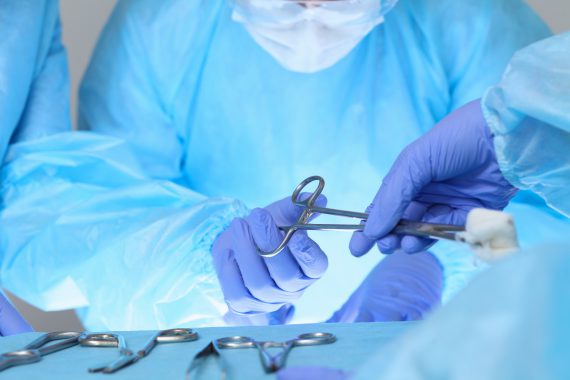Many more patients are now opting to pay for operations privately out of their own money than before the pandemic, figures suggest, with some areas seeing numbers more than double.
Hip and knee replacements top the list of self-funded operations, latest figures from the Private Healthcare Information Network (PHIN) show.
A report on the first quarter of 2022 shows there were 200,000 private patient admissions, an increase of 1% from pre-pandemic figures and the second highest rate in the past three and a half years.
But over the period the number of private operations funded by health insurance has fallen while self-funded admissions have increased by 36%, the market update report suggests.
Wales has seen a 114% rise in the number of private patients paying for their treatment directly with the East Midlands and Scotland not far behind at 76% and 72% respectively.
The biggest numbers of patients admitted to private hospitals for operations they paid for themselves remains in London and the South East, where self-funded care increased by 10% and 31% respectively, the report found.
There were 4,970 private hip replacements done between January and March this year for people who self-paid compared with 1,695 in the same period in 2019 – an increase of 193%, PHIN said.
Knee replacements paid for out of patient’s own funds rose from 1,040 to 2,835 over the same timeframe – a 173% rise.
Other private self-funded operations that have increased in popularity are hernia repair, cataract surgery and knee arthroscopy, the report said.
A report published in 2001 by health data firm LangBuisson concluded that NHS waiting times were having a direct impact on the demand for self-pay in a way ‘that hasn’t been seen in recent years’.
GPs told Pulse this was happening more and more and they were seeing patients who had to make sacrifices or borrow money in order to pay for it.
Dr Ian Gargan, chief executive of PHIN said: ‘Self-pay funding of treatments was a prominent part of the private healthcare market in 2021 with procedure levels well above those of pre-pandemic 2019 and that has continued into 2022.’
He added they expected ‘self-pay to continue to have a significant role in the private market for the foreseeable future’.
Professor Azeem Majeed, a GP and professor of primary care and public health at Imperial College London said: ‘Given the length of NHS waiting lists and the number of people on them, it’s understandable that more people are paying for elective surgery.
‘It will though widen health inequalities as poorer patients won’t be able to pay for private healthcare.’
Dr Lis Galloway, a GP in Surrey said: ‘We’ve seen more and more people opting for private procedures given the long waiting times.
‘It’s often people who can least afford it but who feel desperate enough to use their savings.’
She added: ‘Hips and knees are high on the list along with gallstones and hernias. Who can blame them.’
NHS waiting lists might not start reducing until March 2024 because patients delayed seeking care over the Covid pandemic, the Government warned last month.
Pulse October survey
Take our July 2025 survey to potentially win £1.000 worth of tokens

















Well that was the plan. Establish the US corporates – like Mayo Clinic and HCA.